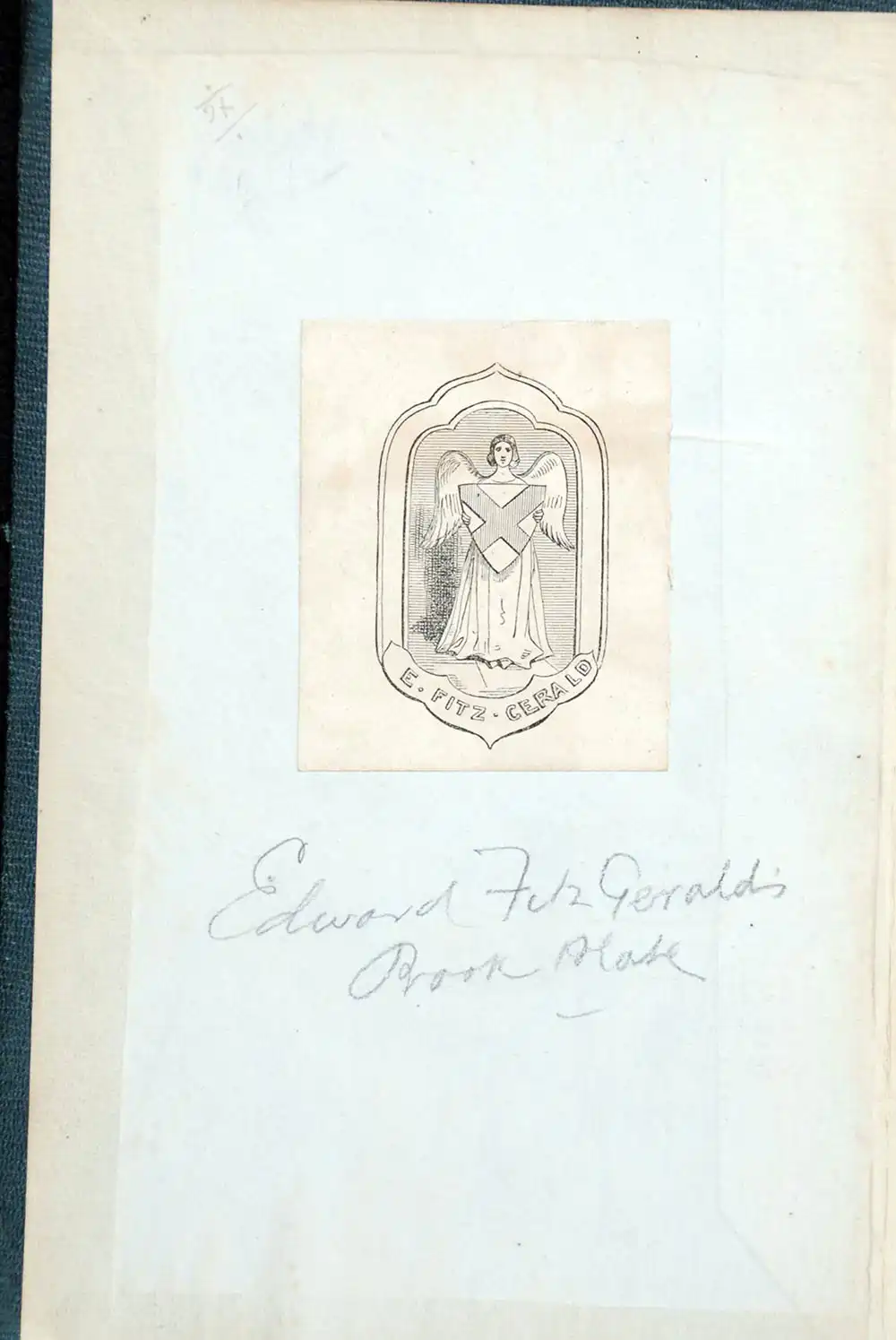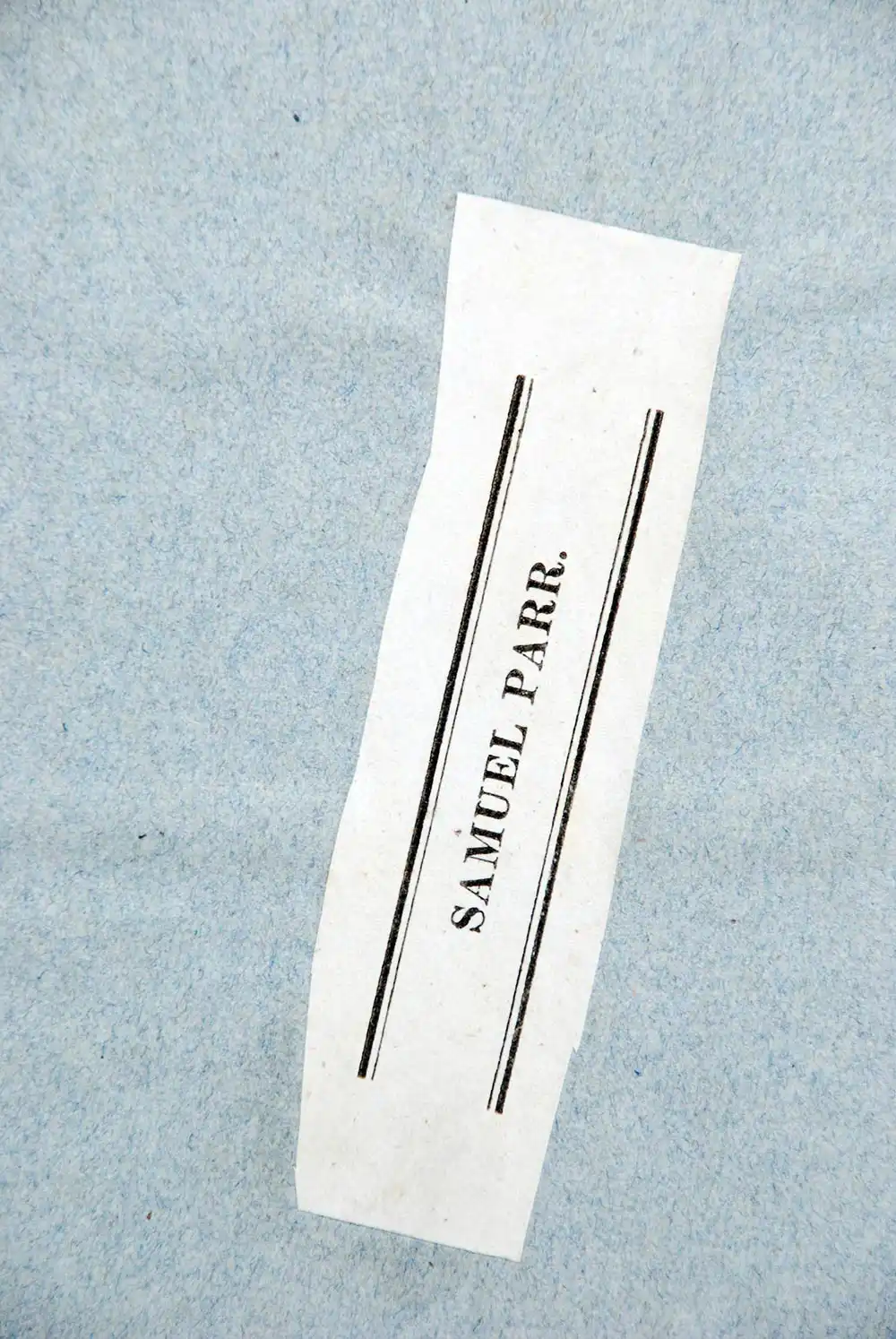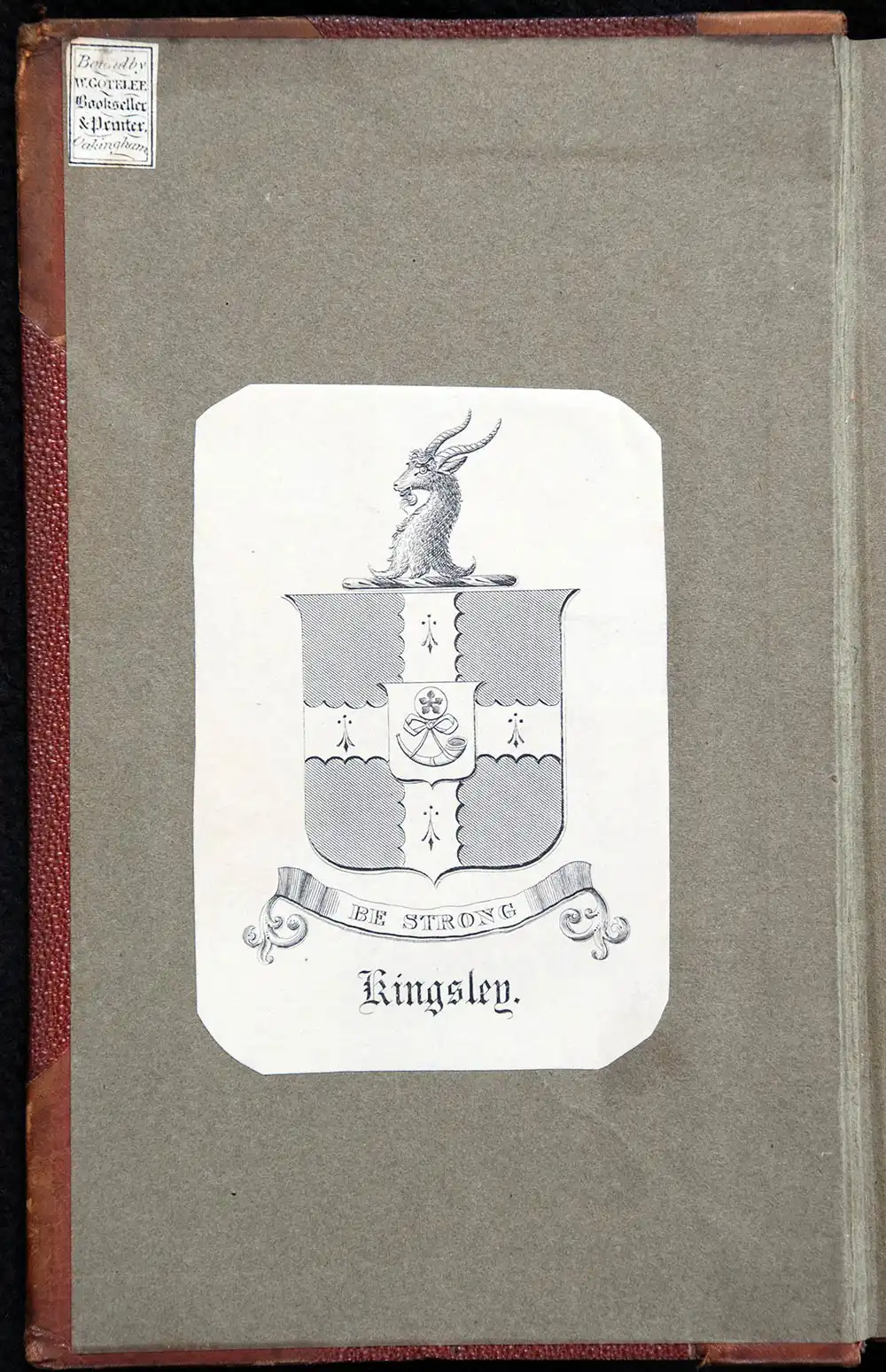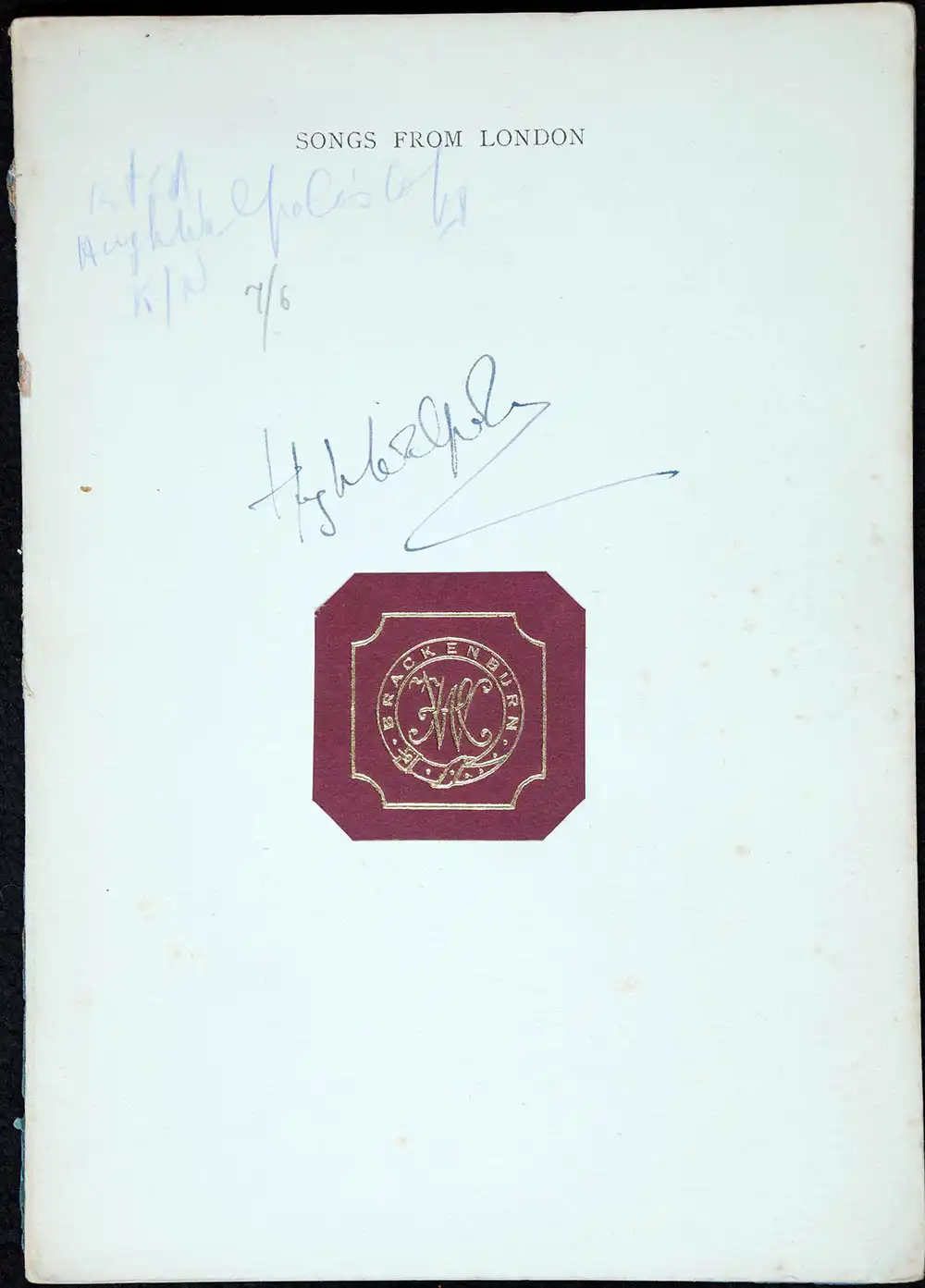Case 13
- Bookplates

Andre Ernest Modeste Gretry. Memoires, ou Essais sur la musique. Tome duexieme. A Paris: De l'Imprimerie de la Republique, 1797.
This
copy contains the bookplate of the poet Edward Fitzgerald (1809-1883), known
for his translation of The Rubaiyat of
Omar Khayyam.
Trinity
College, Cambridge holds several volumes of incongruously bound volumes of
tracts and excerpts which it was Fitzgerald’s habit to make up. Fitzgerald’s
copy of Gretry’s Memoires appears to
have received the same treatment, for the volume is made up of various out of
order sequences of leaves from the three volume 1797 reprint of the 1789 first
edition.
Fitzgerald’s
bookplate was designed by his friend, the novelist William Makepeace Thackeray
(1811-1863).

Andre Ernest Modeste Gretry. Memoires, ou Essais sur la musique. Tome duexieme. A Paris: De l'Imprimerie de la Republique, 1797.
Open image in new window

William Roscoe. The life of Lorenzo de' Medici, called the Magnificent. 4th edition. London: Printed by A. Strahan for T. Cadell and W. Davies, 1800. Three volumes; Vol. 2 displayed.
This
copy contains the book label of Samuel Parr (1747-1825), an English
schoolmaster and political writer known perhaps flatteringly as ‘the Whig
Johnson.’ He was an accomplished Latin scholar who excelled as a writer of Latin
epitaphs, including that inscribed on the monument of Dr Johnson at St Paul’s.
William
Roscoe (1753-1831), historian, abolitionist and patron of the arts, won
international acclaim for his Life of
Lorenzo, first published in 1796. Parr and Roscoe were like-minded friends
who held regular correspondence, both men being unfashionable advocates of
peace during the Napoleonic Wars.

William Roscoe. The life of Lorenzo de' Medici, called the Magnificent. 4th edition. London: Printed by A. Strahan for T. Cadell and W. Davies, 1800. Three volumes; Vol. 2 displayed.
Open image in new window

Thomas Carlyle. Critical and miscellaneous essays. 2nd edition. London: James Fraser, 1840. Five volumes; Vol. 1 displayed.
This
copy of the first volume of Carlyle’s Essays
contains the armorial bookplate of Charles Kingsley with the motto ‘Be strong’.
The volumes are marked throughout, with annotations in Kingsley’s hand,
including an 1841 inscription dating from his time as a student at Magdalene
College, Cambridge.
Charles
Kingsley (1819-1875) was a Church of England clergyman, historian and author,
best remembered for the historical novel Westward
ho! (1855).
Although
twenty-four years junior to Carlyle, Kingsley was certainly acquainted with the
Scottish essayist, as both men were prominent in the 1866 defence of Governor
Edward Eyre, accused of excessive severity in suppressing an alleged rebellion
in Jamaica. Despite philosophical differences, such as their contrasting views
on the working class, Carlyle and Kingsley shared a fervent admiration for
strong leadership in men, even to the point of bloodthirstiness.

Thomas Carlyle. Critical and miscellaneous essays. 2nd edition. London: James Fraser, 1840. Five volumes; Vol. 1 displayed.
Open image in new window

Ford Madox Ford. Songs from London. London: Elkin Mathews, 1910.
This
copy of Songs from London, a volume
of poetry by English author Ford Madox Ford, was formerly owned by Hugh Walpole
at Brackenburn in the Lakes District, and contains his bookplate and autograph.
Sir Hugh
Walpole (1884-1941) was a prolific English novelist whose heyday was in the
1920s and 1930s. Born in Auckland, New Zealand, his family emigrated to England
when he was a young boy. Walpole’s most noted work was perhaps Rogue Herries (1930), a historical novel
set in the Lake District.
Ford and
the younger Walpole both found considerable success in America, where they
certainly met during lucrative lecture tours: both were guest speakers at a
P.E.N. Club dinner in New York in December 1926. In appreciation of Walpole’s
praise of his books in America, Ford dedicated the English edition of his essay
The English novel (1930) to him.



